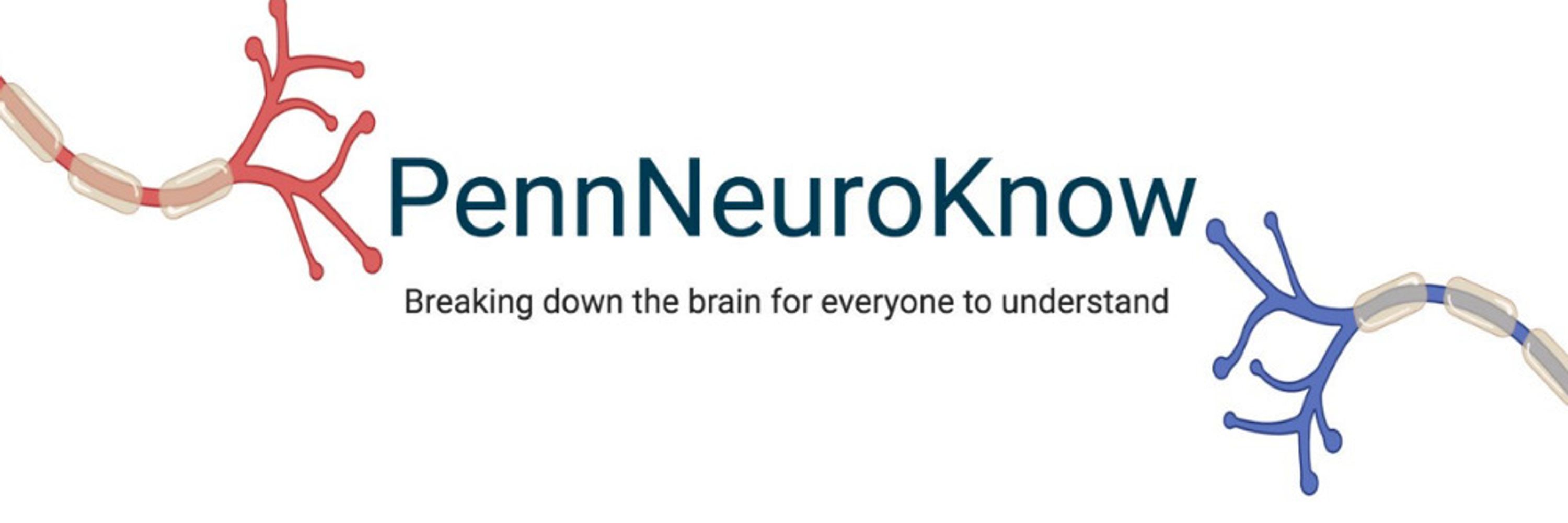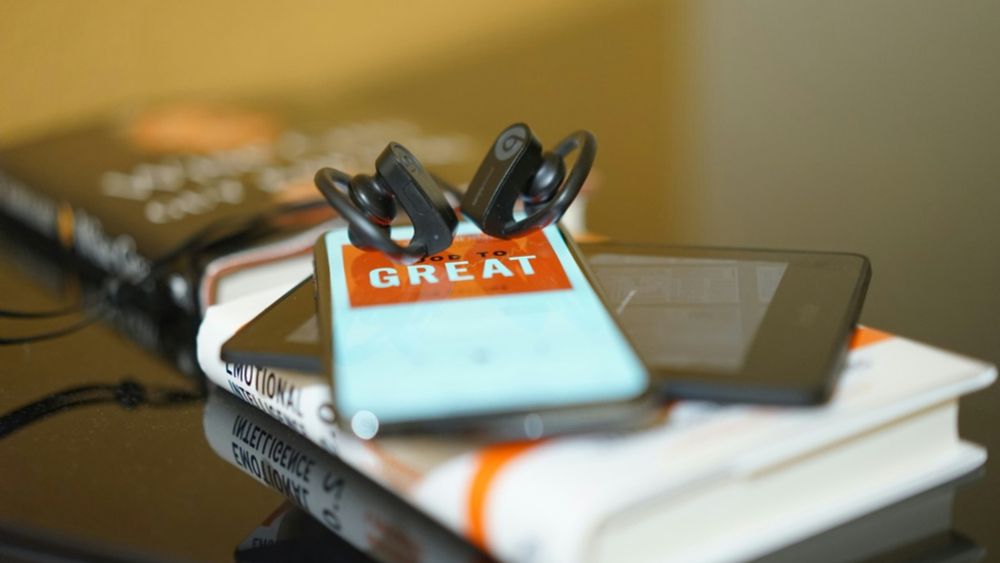
Visit our blog: https://pennneuroknow.com/
Here’s what the research shows about cognitive ability and brain differences between the sexes: pennneuroknow.com/2025/12/23/t...
#PsychSciSky #SciComm 🧠🟦 🧪

Here’s what the research shows about cognitive ability and brain differences between the sexes: pennneuroknow.com/2025/12/23/t...
#PsychSciSky #SciComm 🧠🟦 🧪
Read the neuroscience stories that excited each of our writers most in 2025: pennneuroknow.com/2025/12/30/2...
Thanks for reading along and see you in 2026!
#PsychSciSky #SciComm 🧠🟦🧪

Read the neuroscience stories that excited each of our writers most in 2025: pennneuroknow.com/2025/12/30/2...
Thanks for reading along and see you in 2026!
#PsychSciSky #SciComm 🧠🟦🧪
Read this week’s post from @pennngg.bsky.social student Eve Gautreaux to unpack the history and science of PMS.
pennneuroknow.com/2025/12/16/t...
#PsychSciSky #SciComm 🧠🟦🧪

Read this week’s post from @pennngg.bsky.social student Eve Gautreaux to unpack the history and science of PMS.
pennneuroknow.com/2025/12/16/t...
#PsychSciSky #SciComm 🧠🟦🧪
Read @pennngg.bsky.social student @hayleylenhard.bsky.social’s post to explore the role of T cells in the immune system, the brain, and autoimmune disease.
pennneuroknow.com/2025/12/09/t...
#PsychSciSky #SciComm 🧠🟦 🧪

Read @pennngg.bsky.social student @hayleylenhard.bsky.social’s post to explore the role of T cells in the immune system, the brain, and autoimmune disease.
pennneuroknow.com/2025/12/09/t...
#PsychSciSky #SciComm 🧠🟦 🧪
Read @pennngg.bsky.social student @annakasper1.bsky.social's post to see how scientists use Trojan-horse techniques to sneak medicine past the blood brain barrier.
pennneuroknow.com/2025/12/02/t...
#PsychSciSky #SciComm 🧠🟦 🧪

Read @pennngg.bsky.social student @annakasper1.bsky.social's post to see how scientists use Trojan-horse techniques to sneak medicine past the blood brain barrier.
pennneuroknow.com/2025/12/02/t...
#PsychSciSky #SciComm 🧠🟦 🧪
Read @pennngg.bsky.social student Lucas Tittle's post to explore the neural machinery behind valence and its flexibility.
pennneuroknow.com/2025/11/18/w...
#PsychSciSky #SciComm 🧠🟦🧪

Read @pennngg.bsky.social student Lucas Tittle's post to explore the neural machinery behind valence and its flexibility.
pennneuroknow.com/2025/11/18/w...
#PsychSciSky #SciComm 🧠🟦🧪
This week @pennngg.bsky.social student Nita Rome unpacks the history behind these concerns and how modern studies have debunked this misconception.
pennneuroknow.com/2025/11/11/v...
#PsychSciSky #SciComm 🧠🟦🧪

This week @pennngg.bsky.social student Nita Rome unpacks the history behind these concerns and how modern studies have debunked this misconception.
pennneuroknow.com/2025/11/11/v...
#PsychSciSky #SciComm 🧠🟦🧪

Read @pennngg.bsky.social student Margaret Gardner’s post to learn how neuroscience could help bridge the gap between our values and our actions. pennneuroknow.com/2025/11/04/h...
#PsychSciSky #SciComm 🧠🟦🧪

Read @pennngg.bsky.social student Margaret Gardner’s post to learn how neuroscience could help bridge the gap between our values and our actions. pennneuroknow.com/2025/11/04/h...
#PsychSciSky #SciComm 🧠🟦🧪
Read @pennngg.bsky.social student Abby Lieberman’s post to learn how: pennneuroknow.com/2025/10/28/r...
#PsychSciSky #SciComm 🧠🟦 🧪

Read @pennngg.bsky.social student Abby Lieberman’s post to learn how: pennneuroknow.com/2025/10/28/r...
#PsychSciSky #SciComm 🧠🟦 🧪
Read @pennngg.bsky.social student Serena Chen’s post to learn how your brain keeps you balanced pennneuroknow.com/2025/10/21/t...
#PsychSciSky #SciComm 🧠🟦 🧪

Read @pennngg.bsky.social student Serena Chen’s post to learn how your brain keeps you balanced pennneuroknow.com/2025/10/21/t...
#PsychSciSky #SciComm 🧠🟦 🧪
Read @pennngg.bsky.social student Julia Riley's post to learn how mitochondria safeguard neurons and earn their moniker.
pennneuroknow.com/2025/10/14/m...
#PsychSciSky #SciComm 🧠🟦 🧪

Read @pennngg.bsky.social student Julia Riley's post to learn how mitochondria safeguard neurons and earn their moniker.
pennneuroknow.com/2025/10/14/m...
#PsychSciSky #SciComm 🧠🟦 🧪
In our latest article, @pennngg.bsky.social student Emma Noel explains how our brain’s reward systems and social nature fuel belief in conspiracy theories. pennneuroknow.com/2025/10/07/w...
#PsychSciSky #SciComm 🧠🟦 🧪

In our latest article, @pennngg.bsky.social student Emma Noel explains how our brain’s reward systems and social nature fuel belief in conspiracy theories. pennneuroknow.com/2025/10/07/w...
#PsychSciSky #SciComm 🧠🟦 🧪
This week Stephen Wisser explores a recent study suggesting that artificial sweeteners are associated with faster cognitive decline: pennneuroknow.com/2025/09/30/s...
#PsychSciSky #SciComm 🧠🟦 🧪

This week Stephen Wisser explores a recent study suggesting that artificial sweeteners are associated with faster cognitive decline: pennneuroknow.com/2025/09/30/s...
#PsychSciSky #SciComm 🧠🟦 🧪
Learn how your brain controls your bladder in this week's post by Andrew Nguyen: pennneuroknow.com/2025/09/23/t...
#PsychSciSky #SciComm 🧠🟦 🧪

Learn how your brain controls your bladder in this week's post by Andrew Nguyen: pennneuroknow.com/2025/09/23/t...
#PsychSciSky #SciComm 🧠🟦 🧪
Learn how your brain controls your bladder in this week's post by Andrew Nguyen: pennneuroknow.com/2025/09/23/t...
#PsychSciSky #SciComm 🧠🟦 🧪

Learn how your brain controls your bladder in this week's post by Andrew Nguyen: pennneuroknow.com/2025/09/23/t...
#PsychSciSky #SciComm 🧠🟦 🧪
Dr. Prateekshit "Kanu" Pandey & Cara Hammer
Friday, Sept 19 show features Penn Biology Prof Marc Schmidt!
Is That Right?! is a science comedy show hosted at CSz Philly at 2030 Sansom St. Show starts at 7 PM.
Tickets start at $5 buy here or on site: phillyfringe.org/events/is-th...

Dr. Prateekshit "Kanu" Pandey & Cara Hammer
Friday, Sept 19 show features Penn Biology Prof Marc Schmidt!
Is That Right?! is a science comedy show hosted at CSz Philly at 2030 Sansom St. Show starts at 7 PM.
Tickets start at $5 buy here or on site: phillyfringe.org/events/is-th...
Learn how neuroscientists go viral in this week's post by Omer Zeliger: pennneuroknow.com/2025/09/16/g...
#PsychSciSky #SciComm 🧠🟦 🧪

Learn how neuroscientists go viral in this week's post by Omer Zeliger: pennneuroknow.com/2025/09/16/g...
#PsychSciSky #SciComm 🧠🟦 🧪
Dig into the fascinating world of eye movements!
pennneuroknow.com/2025/09/09/e...
#PsychSciSky #SciComm 🧠🟦 🧪
Dig into the fascinating world of eye movements!
pennneuroknow.com/2025/09/09/e...
#PsychSciSky #SciComm 🧠🟦 🧪
Learn when and why the brain picks a side: pennneuroknow.com/2025/09/02/t...
#PsychSciSky #SciComm 🧠🟦 🧪

Learn when and why the brain picks a side: pennneuroknow.com/2025/09/02/t...
#PsychSciSky #SciComm 🧠🟦 🧪
Learn more in this week's post: pennneuroknow.com/2025/08/26/c...
#PsychSciSky #SciComm 🧠🟦 🧪

Learn more in this week's post: pennneuroknow.com/2025/08/26/c...
#PsychSciSky #SciComm 🧠🟦 🧪
Be a Brain and Language Scientist for an Evening
Pennovation
3401 Grays Ferry Avenue
Philadelphia, PA 19146 US
Free for ages 12+
Registration required: actionnetwork.org/events/be-a-...
Please share.
@standupforscience.bsky.social @ninaahmadphl.bsky.social

Be a Brain and Language Scientist for an Evening
Pennovation
3401 Grays Ferry Avenue
Philadelphia, PA 19146 US
Free for ages 12+
Registration required: actionnetwork.org/events/be-a-...
Please share.
@standupforscience.bsky.social @ninaahmadphl.bsky.social
Learn more: pennneuroknow.com/2025/08/19/v...
#PsychSciSky #SciComm 🧠🟦 🧪

Learn more: pennneuroknow.com/2025/08/19/v...
#PsychSciSky #SciComm 🧠🟦 🧪
@kara-mcgaughey.bsky.social explains: pennneuroknow.com/2025/08/12/y...
#PsychSciSky #SciComm 🧠🟦 🧪

@kara-mcgaughey.bsky.social explains: pennneuroknow.com/2025/08/12/y...
#PsychSciSky #SciComm 🧠🟦 🧪
Co-editor @catrinahacker.bsky.social explores in this week's post: pennneuroknow.com/2025/08/05/t...
#PsychSciSky #SciComm 🧠🟦 🧪 📖

Co-editor @catrinahacker.bsky.social explores in this week's post: pennneuroknow.com/2025/08/05/t...
#PsychSciSky #SciComm 🧠🟦 🧪 📖

